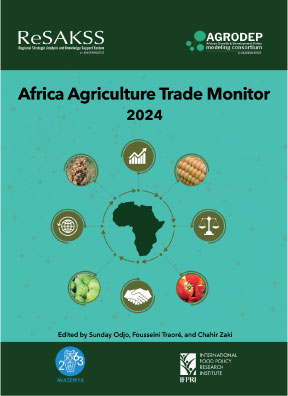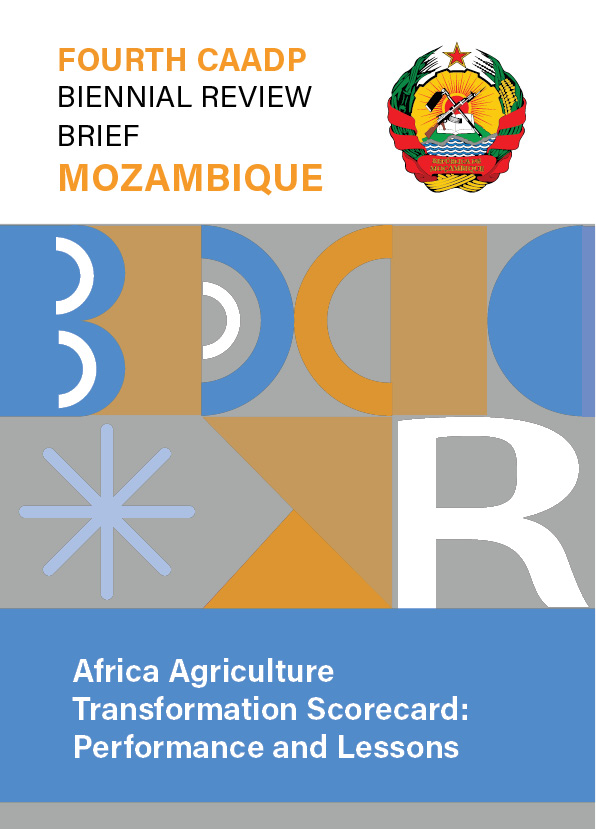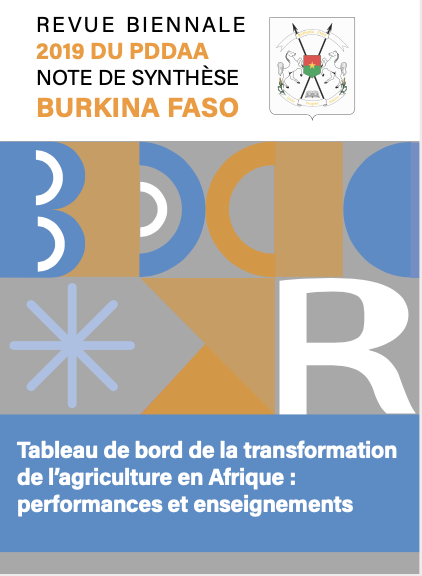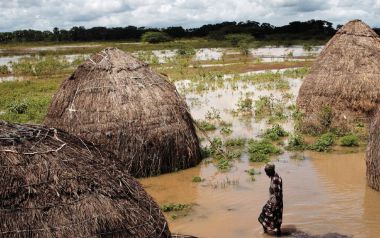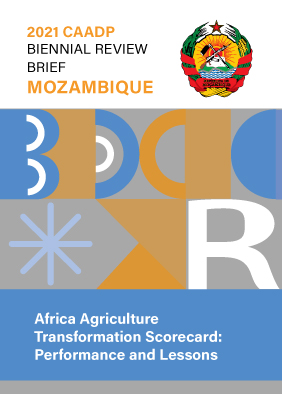2021 CAADP Biennial Review Brief – Mozambique
AUTHOR
João Mutondo, Bhekiwe Fakudze, Greenwell Matchaya, Duque Wilson, Sofia Manussa, and Jacob Ikhothatseng Greffiths
SERIES NAME
Biennial Review
YEAR
2023
ABSTRACT
The Malabo Declaration on accelerated agricultural growth and transformation for shared prosperity and improved livelihoods is a set of goals that were adopted by Heads of State and Government of the African Union in 2014 in Malabo, Equatorial Guinea (AUC 2014). To translate the seven Malabo commitments into results, a call for action was made by the Heads of State and Governments, by calling upon the AU Commission and the NEPAD Planning and Coordinating Agency, in collaboration with partners, to initiate a review process to be conducted on a biennial basis starting 2017, with an objective of tracking, measuring, and reporting progress towards achieving the Malabo Declaration commitments by 2025.
Three Biennial Reviews (BR) have been conducted—the inaugural BR in 2017, the second BR in 2019, and the third and most recent BR in 2021. Mozambique has participated in all three BRs, submitting a country report to the African Union in each BR cycle. This brief draws on the third BR report to summarize the performance of Mozambique in pursuit of the seven Malabo Declaration commitments, assessing the challenges faced and the lessons learned by the country, with policy and programmatic measures required for Mozambique to meet the Malabo Declaration commitment targets by 2025.
The third BR indicates that Mozambique underperformed and is not on track to meet all the Malabo Declaration commitments by 2025. Despite exceeding the overall performance benchmark in the first BR, the country remained off-track with very little improvement between the second and the third BRs.
One of the key recommendations of the analysis is that Mozambique should strengthen the resilience of its farmers, as the country's agricultural sector is particularly exposed to extreme weather events, which can wipe out anticipated harvests very quickly; appropriate mechanisms, such as agricultural insurance, should be made available to farmers.
PUBLISHER
AKADEMIYA2063
